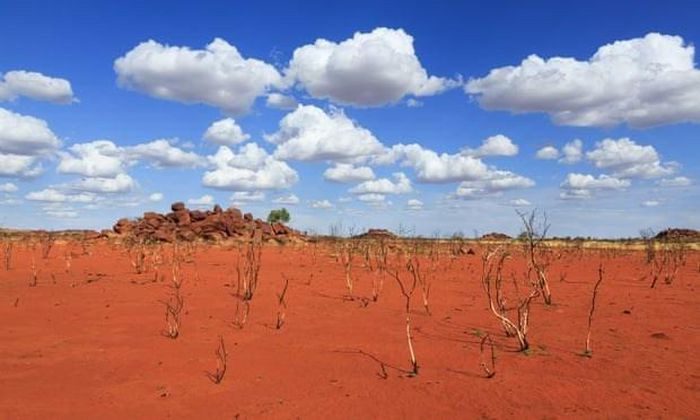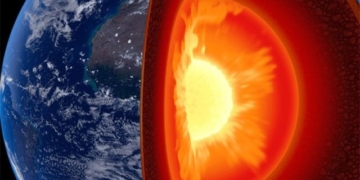The burning of fossil fuels and deforestation has released a significant amount of greenhouse gases into the atmosphere, leading to increased frequency and intensity of floods, droughts, wildfires, and storms.
On May 11, experts noted that all current heat waves are influenced by global warming.

The Pilbara region of Australia records record high temperatures. (Source: Getty Images).
According to a newly published detailed scientific report, the burning of fossil fuels and deforestation has emitted enough greenhouse gases into the atmosphere to cause an increase in the frequency and intensity of floods, droughts, wildfires, and tropical storms.
Scientist Friederike Otto from the Grantham Institute at Imperial College London asserts that climate change is the primary factor behind extreme heat. She stated that the heat waves currently affecting South Asia over the past two months are among the most catastrophic extreme weather events.
Ms. Otto and co-author Ben Clarke from the University of Oxford noted that heat waves around the world are becoming increasingly severe and are at greater risk of occurrence due to human-induced climate change.
Over the decades, there has been growing evidence of the impact of climate change on extreme weather. However, it is only recently that scientists have been able to answer questions regarding the extent to which climate change affects specific weather phenomena.
Previously, scientists could only state that an unusual storm, flood, or severe heat wave aligned with predictions about the impact of global warming on weather. At times, the media would omit the factor of climate change from the overall picture, or mistakenly assume that weather disasters were entirely due to rising temperatures.
Now, with increasing data and more effective tools, scientist Otto and other leading experts in this field have been able to calculate the specific risk of occurrence or intensity of a storm or a particular heat wave influenced by global warming.

German soldiers search for and assist victims in vehicles submerged by floodwaters in Erftstadt, western Germany, on July 17, 2021. (Source: AFP/TTXVN)
Expert Otto and her colleagues involved in the World Weather Attribution (WWA) climate research initiative concluded that the heat wave in western North America in June 2021, which saw temperatures in Canada reach a record high of 49.6 degrees Celsius, would have been virtually impossible without climate change caused by human activity.
Meanwhile, experts are still examining and analyzing the heat waves in India and Pakistan from the previous month. Nevertheless, the concerning overall picture is becoming increasingly clear.
However, global warming is not always the cause of extreme weather. Experts point out that the drought leading to famine in southern Madagascar over the past two years is actually due to the influence of weather variability.
Additionally, through methods validated by experts, the specific calculations of the impact of global warming on extreme weather phenomena also have certain implications for policies worldwide.
Research on the impact of climate change on extreme weather has been used as evidence in landmark climate-related lawsuits in the U.S., Australia, and Europe.
One notable case involves Saul Luciano Lliuya, a Peruvian farmer, who sued the energy company RWE AG (Germany) to demand costs for protecting the town of Huaraz from flood risks due to melting glaciers influenced by climate change.
This lawsuit is based on scientific evidence showing that climate change due to global warming is a direct factor putting this town of 120,000 residents at risk of severe flooding.


















































